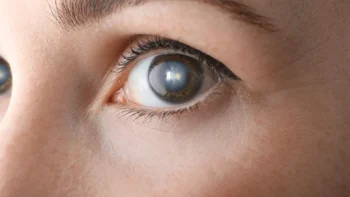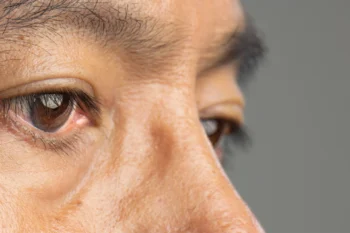Glaucoma Awareness Month
January is a great month for many reasons; it’s a brand new year and you’ve got every opportunity to make it your best ever. It also happens to be National Glaucoma Awareness Month, and that’s why we’re making sure to get you some important facts about this potentially devastating eye disease.
Chances are, glaucoma is a lot more common than you think – and you could even be at risk of developing it. This January, make sure that becoming a little more aware of glaucoma is on your to-do list!
Glaucoma Leads to Blindness
Glaucoma leads to blindness. If this is a surprise to you, you’ll really be shocked when you learn that glaucoma is actually the leading cause of blindness in the United States. Even if you receive the appropriate treatments after developing glaucoma, there’s still a 10 percent chance you could become blind from the disease. That’s why it’s so important to catch it early and give yourself the best chance for proper treatment.
There isn’t a cure for Glaucoma
Unfortunately, glaucoma is not curable. That means that any vision loss caused by glaucoma cannot be regained. That said, with treatment from a skilled ophthalmologist, you can monitor and treat your glaucoma to help prevent further vision loss.
Unfortunately, none of these steps can be taken without an accurate diagnosis, which is why it’s imperative to get comprehensive eye exams on a yearly basis.
You’re at risk – even if you don’t know it.
The scary thing about glaucoma is that everyone is at risk for it – regardless of age, gender and ethnicity. Believe it or not, one out of every 10,000 babies is even born with the disease.
That said, African Americans are more likely to develop glaucoma at a younger age.
There likely won’t be any symptoms.
Glaucoma often doesn’t make itself readily known. In fact, there usually isn’t even pain to warn victims of glaucoma. If you begin to experience vision loss due to glaucoma, it will usually begin with your peripheral vision.
That said, your eyes often compensate for lost vision and you may not even notice this symptom. That’s why the only sure way to “catch” glaucoma is to get tested for it – regularly.
Three million Americans have glaucoma.
Three million Americans have glaucoma. That number may be staggering, but what’s really scary is this: only about half of that number actually know they have it.
You’re at higher risk for glaucoma if you’re over 60.
You’re at higher risk for glaucoma if you’re over 60, have someone in your immediate or extended family who suffers (or has suffered) from glaucoma, are diabetic or are severely nearsighted.
Dilated Eye Exam.
The best way to detect glaucoma is through a dilated eye exam. Unfortunately, only about half of all adult Americans actually get a dilated eye exam every year. For your own health and to preserve your vision and quality of life, ask your eye doctor for a dilated eye exam each year.
30 percent of Americans had never even heard of glaucoma.
A whole lot of people don’t know about it. While you may not know as much as you should about glaucoma, there’s a big lack of knowledge in the country about the disease. In fact, a 2002 Prevent Blindness America Survey reported that 30 percent of Americans had never even heard of glaucoma.
$1.5 billion.
It’s pretty costly. Glaucoma affects its victims’ ability to work, meaning that lost wages and non-productivity are common side effects of the disease. In fact, the effects of glaucoma cost the government $1.5 billion yearly in social security benefits, lost income tax revenues and health care expenditures.
You can take charge.
Glaucoma awareness month is critical when it comes to preventing the devastating effects of glaucoma. Not only should you get educated about the disease, it’s also important to help your friends and family understand it as well.
Additionally, the only way to protect yourself against glaucoma is through regular comprehensive eye exams. Talk to your doctor about how you can help reduce your risk of glaucoma.
Long live Glaucoma Awareness Month!
Let’s make it the best – and most well-informed – January ever!





